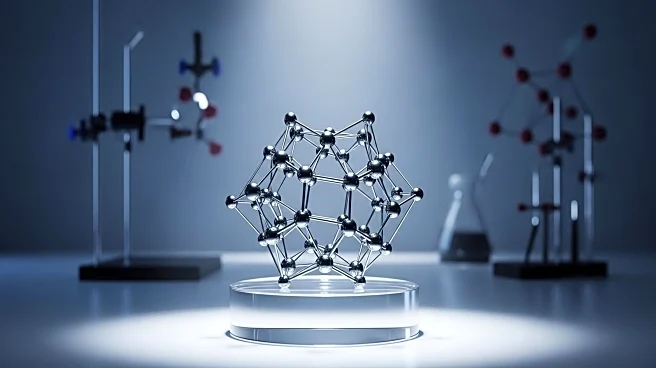What's Happening?
The Nobel Prize in Chemistry has been awarded to scientists Susumu Kitagawa, Richard Robson, and Omar M. Yaghi for their pioneering work on metal-organic frameworks. These frameworks are a new form of molecular architecture capable of capturing carbon dioxide and extracting water from dry air. The development of these frameworks, which began with Robson's work in 1989, has the potential to address significant environmental challenges, such as the removal of 'forever chemicals' from water. The award was announced by the Royal Swedish Academy of Sciences in Stockholm, highlighting the frameworks' potential for creating custom-made materials with new functions.
Why It's Important?
The recognition of metal-organic frameworks underscores their potential impact on environmental sustainability and material science. These frameworks could revolutionize how industries approach carbon capture and water purification, offering new solutions to pressing environmental issues. The ability to separate harmful chemicals from water could lead to significant advancements in public health and environmental protection. The award also highlights the importance of interdisciplinary collaboration in scientific research, as the laureates' work spans chemistry and materials science, potentially influencing future innovations in these fields.
What's Next?
The Nobel Prize announcement sets the stage for further research and development in the field of metal-organic frameworks. Industries and governments may increase investment in technologies that utilize these frameworks for environmental applications. The scientific community is likely to explore new applications and improvements to the frameworks, potentially leading to breakthroughs in sustainable technology. The award ceremony will take place on December 10, commemorating the legacy of Alfred Nobel.









